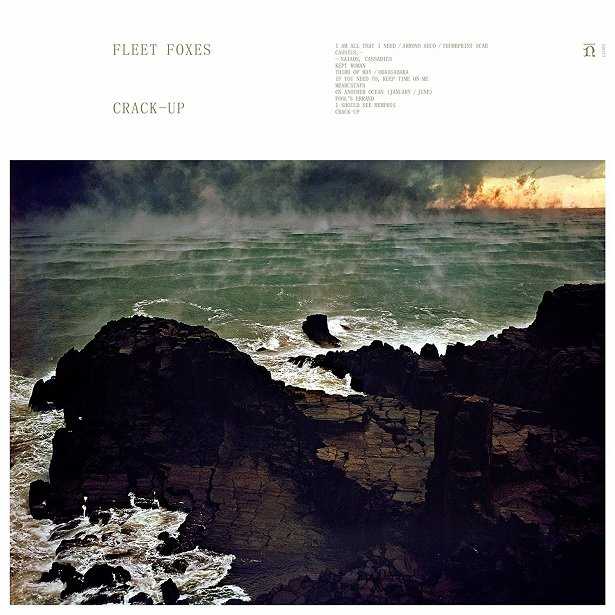
Not that the mutual protagonists would even acknowledge it, but there were barely two months between the release of this, Fleet Foxes third album, and the notching of a similar milestone for their former drummer Josh Tillman – AKA Father John Misty – with Pure Comedy.
The specifics of Tillman’s departure are vague, but it coincided roughly with the beginning of a Foxes hiatus which had many, including founder member and Crack-Up’s co-producer Skye Skjelset, believing it was more likely to be permanent than not.
The album’s other co-producer was Robin Pecknold who became estranged, he’s subsequently admitted, from Tillman before, during and after the recording and promotion of the band’s sophomore album Helplessness Blues. Through his Father John Misty persona, the former sticks-man has rounded on many of the liberal, artisan values which some felt embodied his former outfit, seeing its social media pandemic and retreating instead back to raw values of sex, cynicism and sorcery.
Pecknold by contrast spent the fallow period existentially drifting and disconnected from life’s modernisms before enrolling in New York’s Columbia University as a freshman in 2014. For Fleet Foxes however, there would never be anything as gauche as a ‘reboot’, even when in 2016 it became apparent that without Tillman they’d finally reconvened to produce Helplessness Blues’ successor; Pecknold’s personal journey and Skjelset’s contribution at the desk notwithstanding, Crack-Up arrives as a far more collaborative effort than its predecessor.
Where Fleet Foxes’ debut was an angelical take on the roots music of the American 20th century, its pastoral grace was usurped somewhat by Helplessness Blues’ introduction of influences varying from free jazz to rapturous flamenco. What perhaps in simplistic terms was needed was a record that took both stories and brought them together as a more singular entity: Crack-Up, gratifyingly, is precisely that.
Not, perhaps, that this is the expectation with the dirgeful introductory phase of opener I Am All That I Need/Arroyo Seco/Thumbprint Scar. For a moment the listener may worry that their patience has only been rewarded by well-intended misdirection. This sensation lasts only a moment, as segmentally they’re transported to by now the well familiar byways of harmony and melody, Pecknold’s voice grain to the headwinds of joyous revivalism.
As beauteous as that sound can be, the meaning is frequently obfuscated by his allegorical words but American spectres both past and present loom large over Crack-Up. The disconnected seeds range from F.Scott Fitzgerald, from whom’s short story the title is taken, as well as its premise of seeing the worst of it but making the best, and then of two natives who represent that country’s ying and yang: Muhammad Ali and Donald Trump. The new Prez lurks in many places, most obviously on Cassius (also an Ali reference) which recounts Pecknold’s soul emptying experiences of joining in protests, its mood swinging from downtrodden to triumphant via a mesmerising piano crescendo.
Ali appears again during I Should See Memphis (Like Cassius in Rome/Or in Kinshasa), along with an unidentified ‘Sybarite woman’, unconscious partners on a tune which ebbs and flows, its whispers and violin gently reeling before finally decaying into an unfamiliar pan of white noise and distortion.
It’s the sort of closure which long time fans may find uncomfortable, but Crack-Up after all is both Pecknold’s redemption and purgatory. Some of this anguish is expurgated in the rebuilding of his relationship with Skjelset, a process dealt with on the rolling Third of May/Odaigahara, but the willo-the-wisp subject of Fools Errand remains elusive; “Blind love couldn’t win/As all the facts came in/But I know I’ll chase again after wind/What have I got if not a thought?”.
Is resolution, knotting of all these threads, possible? The titular ending suggests the possibility, Pecknold himself describing the record’s conclusion as a ‘bright clearing’. Together, Fleet Foxes have created a suite of songs for both puritans and rebels, musically as timeless and demure as their former colleague Tillman’s cannon is as confrontational and zeitgeist-mounting.
Whether salvation lies in one man’s world or another, the Crack-Up listener’s journey shows them a life no less traumatised, but offering the stridency of hope.




